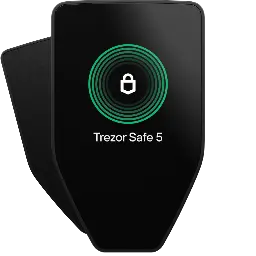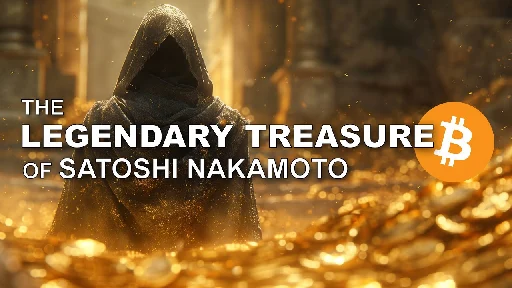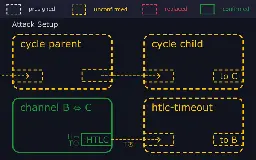
- cointelegraph.com Bitcoiner contributes to Julian Assange’s freedom, pays $500K debt in BTC
Assange appeared in a district court in Saipan on June 26, where he pleaded guilty to one charge of breaching the U.S. Espionage Act by leaking classified documents.

cross-posted from: https://feddit.org/post/315504
> Archived link > > WikiLeaks co-founder Julian Assange is free after a 14-year battle against extradition to the United States. In a final effort to secure his freedom, an anonymous Bitcoiner donated over 8 Bitcoin, worth around $500,000, to help Assange’s family pay off the debt incurred by his travel and settlement expenses. > [...] > The donation link was posted by Stella Assange on June 25, and within 10 hours, an anonymous Bitcoiner paid over 8 Bitcoin (BTC) to the fund, almost clearing the goal of $520,000. He has also received over 300,000 British pounds ($380,000) in fiat donations so far. > > The single Bitcoin donation was the largest donation to the fund, more than all other donations in all currencies combined. As a result, Assange will arrive in Australia debt free.
-
12 words that change everything


cross-posted from: https://lemmy.ml/post/17455858
> Had dinner with some boomer-age family friends tonight who shared stories about their grandparents and other relatives who survived (or didn’t survive) the holocaust. > > One family, posing as Christians, managed to escape Poland to the US in 1939. They had to travel through Nazi Germany and Italy on their journey. > > This family invested much of their life savings into expensive camera equipment to not raise suspicion, as they were traveling under the pretense of going on holiday. > > The conversation developed into all the ways people attempted to conceal and travel with wealth as they fled their homeland. Apparently, sewing diamonds into clothing was a common tactic. > > These close friends were struck to hear how Bitcoin enables the storage and transfer of wealth by simply knowing a secret number. I told them of the work @gladstein and others are doing to get Bitcoin knowledge and tools into the hands of political activists and refugees. > > “Fuck You Money” is a world changing technology. Let us not lose site of what really matters here 🫡 🤙 > > From nostr https://njump.me/nevent1qvzqqqqqqypzpz9zcw6zpd9qyacx4xrqp50aw39vdn739cspkaqcn0j77jet82j9qyfhwumn8ghj7mmxve3ksctfdch8qatz9uq3vamnwvaz7tmjv4kxz7fwdehhxarj9ehx2ap0qqsy98wlnfyk6ltxrgptyq6ysxhfwenseqawk08yz493yhdqsmcq4rgc787rs
-
Braiins Mini Miner - BMM 100
shop.braiins.com Braiins Mini Miner - BMM 100 (pre-order)THIS IS A PRE-ORDER WITH EXPECTED DELIVERY IN SEPTEMBER 2024. Mine bitcoin at home now with the first-ever European mining hardware built with love in Prague. Whether you want to join a mining pool or try your luck at mining an entire bitcoin block solo, the choice is yours. The Braiins Mini Miner i...

Ever since the interview with Lukas Seyfrid (CZ), the chief of the hardware team, it was clear that Braiins is pivoting from the development of mining software, to building their own hardware.
This, I believe, is the first iteration of their effort in form of a consumer product, and while it is unlikely to make you a financial return on the investment, it's small form factor and nice anodized aluminum case can allow pretty much anyone to become familiar with the process of bitcoin mining. Or terrorize the testnet. The choice is yours.
I think I might buy one, just to try the viability of a pure solar setup.
HW specifications:
||| | ------------- | ------------- | | Price (pre-order) | $199.00 | | Hashrate | ~1Th/s | | Power Consumption | 40W - 55W | | Number of hashboards | 1 | | Number of ASIC chips | 4 | | Cooling Type | Active | | Noise | 40 dB | | Air outlet temperature | 40-50 °C |
But really, how much would it make in a year?
If we assume the current price and difficulty stays the same, the block subsidy is 3.125 BTC, median fees around 0.2212 BTC, free electricity, you'd get 0.001 BTC per 12 months, which is roughly 65 USD. A little more than 3 years to break even.
It's not going to break any records, but I'm still excited for what's to come next.
- trezor.io Trezor Safe 5 | Secure Crypto Hardware Wallet
Experience the new Trezor Safe 5 hardware wallet with color touchscreen & haptic feedback.

It's a successor to the model T, with the new design inspired by the Safe 3, announced earlier this year.
They promise nice, easy to use UI, color display, haptic feedback, gorilla glass. Several color variations are available, including the bitcoin-only orange option.
-
Bitcoin is about more than money, adding BitVM and other smart contract features to Bitcoin will change society.
Globally, people are losing faith in our institutions. Our financial institutions, our governments, our media, our medical systems, even democracy as a concept in many cases. And for sound reasons. Proposed upgrades to Bitcoin's protocol would enable use of the chain (and L2s) for things aside from just money. On the world's most secure document: the bitcoin ledger. It will change everything and here's why.
The root problem is that we are building systems which rely on trust and time and time again, that trust has been broken. We have to trust that the people elected or appointed to those positions will do their jobs faithfully. But, of course, like us, they are humans and fallible. Subject to stupidity, greed, misdirection, and error whether through malice or accident. Take money, for example. Money has to be trust-able, so it is entrusted, for all its faults, to the most stable and neutral institutions humanity has ever created: the state. And yet, the state often abuses that authority to print money they shouldn't leading to inflation and hyperinflation, particularly for unpopular wars of conquest. Every failed state ends in hyperinflation, because it's a tool in the state's toolbox and they will use it when they have no other options. They'll turn on that money printer if they need to. And time after time, they have. There are ways to create trustless systems, where we do not have to trust individual actors to administer them faithfully, only for them to be mostly rational actors subject to the same laws of math and physics as the rest of us. Instead, the system administers itself according to some form of protocol. Bitcoin did this for money 15 years ago, it was created by Satoshi in the wake of the nearly total collapse of the global financial system (2008 financial crisis) to create a system which could not suffer the same fate. We all had to bail the banks out because they were "too big to fail", which was true, Bernanke won a nobel prize in economics for his analysis of this and the bailouts likely prevented the worst economic period since the great depression had the entire banking system be allowed to fail. You may not know who Bernenke is, but if you were alive during this time period, you know his face, he was the guy who had to sell the bailouts to the world as an idea. The reality is, fractional reserve banking is a ponzi scheme, and had the banks failed and people realized it, it would have stopped functioning. Our debt-based world order would have collapsed. No credit could be issued to build roads or fund schools or do anything because there would be no money in the banks to use as collateral and nobody would trust it. Just like in the US great depression. You can argue it's a sneakily beautiful ponzi scheme which drives the engine of human progress if you are a die-hard capitalist, but you can't argue it's not a ponzi scheme.
The crazy thing is, Bitcoin worked. It has kept every promise it made. For 15 years, it has faithfully administered a financial system with a known, transparent, limited supply of 21 million coins which can be transferred across the globe in seconds for pennies in fees. And it has continued to grow no matter which metric you measure it by. Through pandemics, wars, international conflict, attempted bans by major world powers, tick tock, next block, the blockchain continued to function. Not a single hour of downtime, not a single bank holiday, not a single hack or breach of security or protocol. Now, it has a market cap of over 1 trillion USD, which is bigger than the GDP of Israel, the Netherlands, Turkey, or Switzerland, countries with tens of millions of people. It's been consistently over 800 billion for a while now. It moves hundreds of millions of dollars of value on the regular. I can send a transaction to anybody on the planet with a cell phone and halfway reliable internet for under a cent in under a second.
Nobody can make Bitcoin print money it's not supposed to print. Nobody can transfer money without the private key of that coin. Nobody can force the network to do anything outside of its protocol, even if they bought every Bitcoin in existence. Even if they had a trillion dollars and 1,000 people with AKs ready to die for it. It's mathematically, computationally, financially, and logistically infeasible. I think the question is, long-term, how can be we build political and social systems which are equally trustless where we don't have to put people in positions of power. Just like democracy did to monarchy in spreading power around and reducing the damage one corrupted individual could do, we can now do that again in an order of magnitude greater in the same direction towards greater democratization. Whether you're a capitalist, a communist, or a member of the federation of planets, this tech has serious promise for making your ideal global vision come true. It's a matter of setting up the system correctly and getting adoption of it. It can be used for voting systems, for the collection of taxes, for the administration of public funds, goods, and markets. It can be used for a lot more than just money. With smart contract functionality, Bitcoin will be the ledger upon which all this is built.
I'm excited to be here with all of you. We are early. Most people I know don't own any crypto. The future is coming. Thank you Satoshi for your gift to the world.
-
Been using lightning for a few months, it's awesome, let's clear up some misconceptions and old info
I've been using lightning for a couple months now and I've read lots of incorrect or outdated information about it online. It's been a very smooth experience for me, and I want to share what I've learned.
TLDR: Using lightning with a custodial wallet (strike, cash app, etc) is as easy as using venmo. Transactions happen instantly and cost pennies, often under a single cent. Using it with a non-custodial wallet is slightly more complicated but well within the ability of the average person as nearly all the complexity has been abstracted away. Lightning scales really well.
Background:
Lightning is a scaling layer for Bitcoin that enables you to make transactions off-chain with security being provided by the base chain. Transactions confirm in under a second and the fees measure in pennies.
A fundamental problem with blockchain is that space in the blockchain is limited. If you increase the block size (number of transactions per block) or add smart contracts, the size of the chain increases. This means you need more powerful hardware and network connection to run a full node, which increases centralization. Bitcoin, at every turn, has chosen to pursue decentralization, but at the expense of higher chain fees since the limited space increases the competition for the available slots. This is why you can run a Bitcoin node on a 10 year old laptop with a 500GB hard drive but you can't run a node for other cryptos unless you have a server and a fiber connection.
Lightning was designed to enable fast off-chain transactions with much lower fees, and it does that.
How to use:
To use lightning, you need a wallet which supports it. You can use a custodial or non-custodial wallet.
Custodial wallets mean somebody else holds the keys/funds and you trust them to hold onto them. "Not your keys, not your coins" as they say. Custodial wallets are also a popular choice for buying/selling BTC since they can often connect to your bank account. Popular custodial wallets for Bitcoin lightning are Strike, Cash App, and Wallet of Satoshi. I highly suggest strike. Using a custodial wallet with lightning is as easy as using Venmo.
Non-custodial wallets mean you hold the key. If you don't write down the seed phrase it gives you and the device with your wallet dies, you will lose your key and your funds. Popular non-custodial wallets for lightning are Phoenix (mobile) and Electrum (desktop). Zeus (mobile) is great if you want more control and the ability to receive transactions while the app is closed. Non-custodial wallets can also be slightly more complex to use. I highly suggest Phoenix, I have been using it and it is awesome. Electrum is great as well, but I haven't used it for lightning.
Note: an on-chain tx is required to move any of your existing Bitcoin into lightning. Unless you bought your BTC and store it in a custodial wallet or exchange that supports lightning.
Myths:
"Lightning requires you to be constantly re-balancing channels"
- If you use a custodial wallet, you don't even have to know what a channel is, your wallet provider handles all of this. For non-custodial wallets like Phoenix, this is mostly abstracted.
- For non-custodial wallets like Phoenix, most of this is abstracted away for you.
- If you receive a payment and don't have enough liquidity, an on-chain tx will be made which incurs an on-chain fee. Some wallets like Phoenix allow you to rent liquidity for very cheap to avoid these fees.
- Most people receive their paycheck and then spend most of it, if you follow this pattern, your channels will stay "balanced".
- Some background on channels: in lightning, you make a "channel" by locking up some BTC. If you lock up 1BTC in a channel, you can send up to 1BTC to anybody else. You can have basically an infinite number of transactions in a channel. Every time you send or receive BTC in a lightning channel, the "balance" of the channel is updated ie how much of the BTC in the channel belongs to you vs the other person you opened it with. When you send BTC, you open up "channel capacity" called "inbound liquidity" for somebody to send you BTC over lightning. If you don't have incoming channel capacity and somebody wants to send you BTC, you will need to do an on-chain tx to create it. It works this way to ensure security.
"Funds are easy to steal on lightning and you have to monitor everything"
- Attacks in the wild are incredibly rare because every incentive is aligned against the attacker.
- If you use a custodial wallet, you don't have to monitor anything and your funds are safe if you trust your custodian.
- If you use a non-custodial wallet, you don't have to worry about this either. Phoenix, for example, automatically uses their watchtower service. As long as your device can connect to the internet every few days, you are fine here.
- The main attack watchtowers prevent against (and really the only attack possible in lightning) is for somebody to "force close" your channel and broadcast an "old" channel state on main chain which assigns the wrong amount of BTC to you. If you watch main chain, you can dispute this state they published, get the correct amount of BTC assigned to you, plus a penalty which is charged to the attacker.
- Lightning is great for everyday spending. If you have significant funds, on-chain txes and cold storage/multi-sig are best.
"You have to make a channel for everybody you transact with"
False. Once you have a channel with anybody you can use that channel to route payments to anybody else on lightning.
"You have to keep manual backups of your channel state or you can lose your funds!"
This is true, but this is usually automated and built into the app. With Phoenix, for example, so long as you have your seed phrase you can install Phoenix on a new phone and automatically retrieve the backups made of your chain state since Phoenix's developers automatically keeps the backups. Other wallets offer similar "storage via lightning" backup options.
With custodial wallets, they do this automatically so you just have to remember your username/password.
"Lightning doesn't scale"
- Lightning scales very well. Once you create a channel, you can have essentially an infinite amount of transactions in it, all of which occur off-chain. There is enough chain space to make lightning channels for billions of people.
- This provides enough capacity for significant growth in Bitcoin's adoption
- A single on-chain tx can make a single channel. There are proposals in the works to make multiple channels with a single tx (channel factories) and other L2s like Ark and Fedimint which extend/complement lightning.
"Sure fees are low now, but as more people use it, fees will get high!"
No. The reason fees increase on main chain is because you have limited space and you must pay miners for that space. A lightning channel, once opened with a single on-chain tx, can host millions or billions of transactions. The cost to route these transactions is extremely small from a computation standpoint, there is no mining required. Space is not limited, so competition for space doesn't drive high fees.
"Lightning is centralized"
Wrong.
- Lightning uses the security of Bitcoin's L1 to secure transactions.
- Transactions are routed through a network of lightning routing nodes, there's currently at least 41,000 of them, you can run one on a Raspberry Pi.
- Routing nodes can't rug you or steal your funds. You don't have to trust those nodes to secure your BTC, that is secured by L1.
-
Happy Bitcoin Pizza Day
https://www.investopedia.com/news/bitcoin-pizza-day-celebrating-20-million-pizza-order/
-
BTC Multisig betting with Electrum (Proof of concept)
Hello everyone!
I made a site where you can make bets online with an electrum multisig wallet (p2wsh). I made the UX easy as possible for onboarding and I'd like to hear your feedback about it. The website is currently live on BTC testnet3. I made a cheesy tutorial as well!
The site is: https://olivetitan.com
You can get testnet coins from https://cryptopump.info, https://bitcoinfaucet.uo1.net/ and many others.
I think this is the safest way to bet online currently. BTW you get proof, that you lost :)
No one can cheat.
I'm also looking into bitVM and exploring how that can help. Still learning!
Thank you for reading and hope you have a great time! ♥
NOTE: Do not use LTC, it asks for real LTC, not testnet
- www.coindesk.com Samourai Wallet Founders Arrested and Charged With Money Laundering
Prosecutors are alleging Samourai Wallet laundered over $100 million in criminal proceeds.

"Prosecutors are alleging Samourai Wallet laundered over $100 million in criminal proceeds."
- cointelegraph.com Phoenix and Wasabi exit US market amid self-custody wallet crackdown
Phoenix Wallet and Wasabi Wallet will cease services for U.S. customers due to concerns about increased regulatory crackdowns in the country.

"Recent regulatory action against Consensys and Samourai has instilled fear among other crypto service providers operating in the United States."
- Wasabi is the main competitor to Samourai's whirpool mixing service. The only one flying under the radar currently is Joinmarket.
- Phoenix is the Lightning network wallet where users keep custody of their funds, but the channel management is outsourced to the company. The only remaining self custodial lightning wallet that remains is Breez.
While this news is deeply troubling, it might push further development to more sustainable trustless self-custodial solutions in the long term.
-
"The Legendary Treasure of Satoshi Nakamoto" by Swan Bitcoin

YouTube Video
Click to view this content.
A mini documentary about the mysterious creator of Bitcoin.
-
EU moving towards total monetary surveillance and banning all anonymous payments


cross-posted from: https://lemmy.ml/post/13481220
> How to contact your MEP: https://www.europarl.europa.eu/portal/en/contact > > Source: https://snort.social/nevent1qqsvcedd6dg39eh6633uqqff0p9h2zqyhu3zd6kwyyhzqj7da02x4pszyqe2wpknmwkyd0t295d5ezvtaxr00ngxjtcfuct8pfvyec3snckpwqcyqqqqqqgz2f7lp
-
Bless this man 🙏


Source: https://snort.social/nevent1qqs2lwpm4l9ahzllx2yha4853xknsfxc9yacl653wefkpc0t8crh5dczyrzw4whphc70v4aurp27up0xnh5lqkwt0gzeyfck3wqt39mpe0zwqqcyqqqqqqg8mex40
-
Human Rights Foundation hands out $500K in Bitcoin Development Grants
cross-posted from: https://lemmy.ml/post/13412436
> $500,000 to 14 projects targeting global education, Lightning Network innovation, decentralized communication, and easing access to financial freedom tools for nonprofits > > 🌍🌏🌎🎁 > > https://bitcoinmagazine.com/business/human-rights-foundation-grants-500000-to-14-bitcoin-projects-worldwide > > Grant > #1: USD E-Cash by Dr. Calle, leveraging the Cashu protocol for a secure USD-based Chaumian e-cash system that respects your privacy. Funding will support the full development of this project 🔒💸 > > Grant > #2: BTC Pay Server provides free open source software for organizations that rely on Bitcoin, it is a critical tool for nonprofits operating in challenging environments. Funding will support enhancing the platform's user experience and extend its capabilities 🌐 > > Grant > #3: BOB Space, for its Builders Residency Program in Thailand. Funding will help launch a new cohort, to be dedicated to identifying weak spots in Bitcoin’s decentralization, and making those into strengths 🌱 📡 > > Grant > #4: YiBao, a non-profit that advocates for democracy and human rights within the Chinese-speaking world. Funding will enable translating key Bitcoin educational materials into Chinese and promoting financial freedom inside the world’s biggest Communist country 🇨🇳 > > Grant > #5: The Bitcoin Innovation Hub, led by Noble Nyangoma in Uganda, offers a range of vocational training and financial literacy to women and men, centered around using and earning Bitcoin. Funding will support the addition of classes such as carpentry, baking, and valuable digital skills. > > Grant > #6: Bitcoin Dada, founded by Lorraine Marcel, is on a mission to empower African women with Bitcoin knowledge. Funds will support expansion across Africa, the creation of multilingual educational resources, and promote women-led businesses adopting Bitcoin 💪 > > The grants in this round to both Bitcoin Dada and The Bitcoin Innovation Hub are generously supported by Strike’s nonprofit initiative. Big shout out to Strike and everyone else that makes our work possible! ⚡ > > Grant > #7: The Bitcoin Design Foundation contributes essential user research, aiding Bitcoin wallets and companies in enhancing UX to guarantee Bitcoin's accessibility for all 🎨📲 > > Grant > #8: Bitcoin Optech is a vital resource for the Bitcoin developer community, offering insights into the most important Bitcoin technical conversations. Funds will be allocated towards operational expenses and growth strategies. > > Grant > #9: Damus, the first > #NOSTR client on iOS, is expanding to Android! Funding enables this critical initiative which makes this open source client available to millions of new users in authoritarian countries and the developing world. > > Grant > #10: Bitcoin Core Developer Pablo Martin's contributions help maintain Bitcoin as a secure digital currency, pivotal for activists and individuals in high-risk environments. HRF is proud to support Pablo! 🛡👨💻 > > Grant > #11: LNbits aims to decentralize custodianship and provides users with a robust suite of Bitcoin tools they can run for themselves. Funding will support the core contributors’ salaries, bounties, and educational outreach efforts through workshops and video tutorials ⚡ > > Grant > #12: The Bitcoin Policy Summit 2024, organized by Bitcoin Policy Institute, is a critical platform for discussing how Bitcoin can play a role in protecting human rights. Funding will support event logistics, speaker travel, and attendance by human rights advocates 🏛️🗣️ > > Grant > #13: Video series "Bitcoin for Billions" by > #Bitcoin educator Paco de la India, is making Bitcoin accessible to millions in India, in a variety of local languages. Funding will be used for research, content creation, translation, and promotion 🎥🇮🇳 > > Grant > #14: Scalar School in Brazil, established by Luciana, is nurturing a new wave of Bitcoin and Lightning developers across South America. The grant will go towards teachers’ salaries, training workshops, and university outreach 🌎🇧🇷 > > The Bitcoin Development Fund is committed to facilitating $2 million of grants in 2024, aiming to bolster innovative technical, educational, and community-driven Bitcoin initiatives worldwide > > Submit your application at hrf.org/bdfapply
-
Trezor reveals 66,000 users could face phishing attacks
coinjournal.net Trezor reveals 66,000 users could face phishing attackTrezor says 66,000 users could face phishing attacks after a security incident that involved a third-party support portal on January 17, 2024.

> > > The security incident happened on January 17, 2024, Trezor disclosed in a blog post published on January 20. > > > > It involved a third-party support ticketing portal that Trezor uses. > > > > Contact details included names and email addresses for up to 66,000 users were compromised. > >
- arstechnica.com How a 27-year-old busted the myth of Bitcoin’s anonymity
Once, drug dealers and money launderers saw cryptocurrency as perfectly untraceable.

A story about Sarah Meiklejohn, and how she started to analyze the blockchain back in 2013.
cross-posted from: https://lemmy.zip/post/8623167
> > Once, drug dealers and money launderers saw cryptocurrency as perfectly untraceable.
-
A "bug fix" in upcoming core release will kill Ordinals
cointelegraph.com Bitcoin Ordinals could be stopped if blockchain bug is patched, claims devBitcoin Core dev Luke Dashjr says Ordinals could be stopped if the blockchain is patched.

Luke-jr has always seen Ordinals as a threat to #Bitcoin. He intends to offer a solution that will prevent the creation of new ordinals.
-
Keybleed / Randstorm and Bitcoin Core
Hi all! Does anybody know if bitcoin core (bitcoin-qt) is also vulnerable to keybleed / randstorm? Thank you
- www.nobsbitcoin.com How Does a Lightning Replacement Cycling Attack Work - Illustrated Primer
"A proper fix probably requires more fundamental changes."

A new type of vulnerability has been found, affecting the routing nodes, allowing the attacker to steal the amount locked in HTLC you're forwarding for them. Several scenarios and possible mitigations are suggested in the article.
For more details, see the original paper: https://github.com/ariard/mempool-research/blob/2023-10-replacement-paper/replacement-cycling.pdf
Discussion on stacker.news: https://stacker.news/items/288995
-
Trezor Safe 3
There's a new Trezor HW wallet available. It's a long awaited refresh of the original Trezor One. Two buttons, one screen, USB-C, and a new chip that makes it tick. Now with 100% more secure element!
They also offer a new cold storage solution - https://trezor.io/trezor-keep-metal . The form factor is similar to cryptosteel, but the mechanism of entering the seed phrase is different. You punch a bunch of holes in the metal plates. Depending on what material is used, I'd say it's much more fool proof compared to cryptosteel. If an unsuspecting nocoiner opens it, there is no risk of them just spilling all the letters out and financially ruining the whole family in the process.
-
General discussion thread, October 2023
I'm sick of coming here and not having somewhere to talk so here's a thread for everyone.
I like Bitcoin, and u?
-
I found an old stack of paper(belongs to my father in law)
He has invested many years ago, he doesn't remember how much and he has never been able to figure it out himself so now im trying to help him on the first page it says "bitcoin" his mail and then some letters and numbers in a string, and then some random notes and a few shopping lists, but on many pages is the exact same shopping list consisting of 7 items so i think that might be the code but idk i have not yet found anthing that could be the code can anyone help me getting his bitcoins back
-
Badges to show BTC balance in github etc?
Is there any online service/tool/website which provides a way to show badges (little SVG images like are commonly seen in Github readmes) which show the balance of a BTC address? Bonus if it shows the USD value as well. I found a project on github called balancebadge but seems to be dead.
This is so we can show the current total amount of donations made to an open-source project.
Example of badges I’m talking about:
-
Against The Inevitability Of Bitcoin
TL;DR- Be optimistic, but not fatalistic. Success still requires action. The article is worth reading in full, though.
> > > Even if we accept the argument that the success of bitcoin as an asset due to its fixed supply and network effect is of high certainty, that does not guarantee the success of Bitcoin as a platform for a “full stack,” peer-to-peer financial ecosystem. > >
...
> > > Failing to correct for this will result in the wider Bitcoin ecosystem suffering from choke points and resilience shortcomings which can and will be easily leveraged by adversarial actors to attack the network and its participants. > >
...
> > > However, some will argue that ossification sooner rather than later is actually desirable as a defense against malicious changes to the Bitcoin core protocol, a la SegWit2x. This attitude entirely ignores and greatly increases another exploitable attack vector: stalling and preventing beneficial changes to the protocol which can enable more robust peer-to-peer and self-custodial solutions on subsequent layers. Indeed, after the spectacular failure of SegWit2x, any adversary would likely conclude the stalling strategy to be far more viable. > >
EDIT: Didn't propagate because lemmy.world was down
-
PayPal just launched their own stablecoin
www.paypal.com PayPal Stablecoin | US Dollar CryptocurrencyPayPal Stablecoin is a US dollar cryptocurrency now available to consumers. Learn more about our stablecoin and how to buy it here.

That'd make them the largest company to do so, as far as I'm aware.
-
should I keep all my bitcoin on cash app?
Title mostly says it all. I have a hardware wallet but the battery is toast and it only works when plugged in, and the buttons are a little sketchy at times, sometimes they work sometimes they don't.










